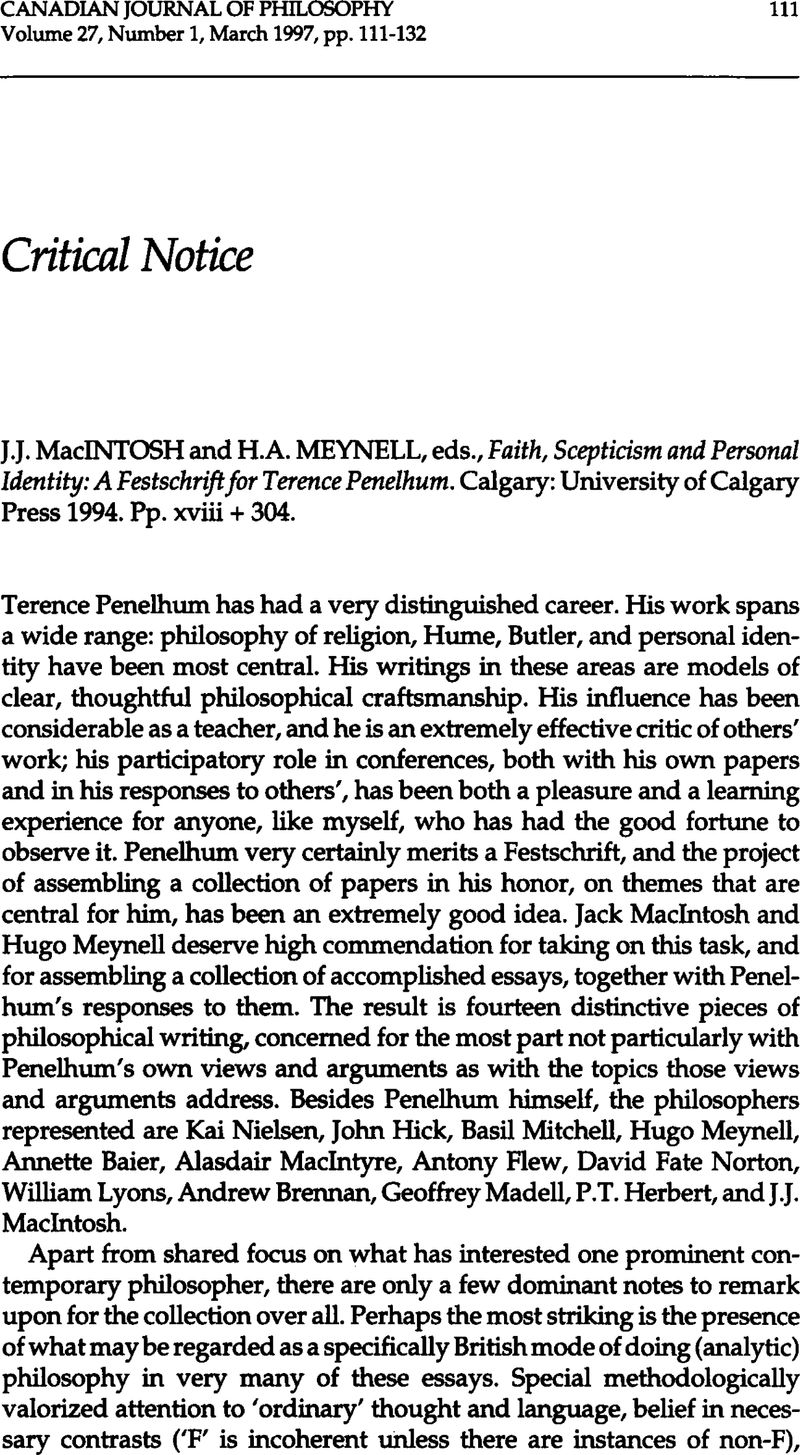No CrossRef data available.
Published online by Cambridge University Press: 01 January 2020

1 All page references are to the Macintosh and Meynell volume.
2 Ducasse, C.J. Causation and the Types of Necessity (Seattle, WA: University of Washington Press 1924)Google Scholar; Mackie, J.L. The Cement of the Universe (Oxford: Oxford University Press 1974Google Scholar; Wright, G.H. von ‘Natural Modality,’ in Truth, Knowledge, and Modality (Oxford: Basil Blackwell 1984), ch. 3Google Scholar
3 Perry, John ‘The Problem of the Essential Indexical,’ Noûs 13 (1979) 3–21CrossRefGoogle Scholar
4 This construal of Hume's meaning is generous, but not unreasonable. The whole relevant passage is as follows: ‘Similar objects are always conjoined with similar. Of this we have experience. Suitably to this experience, therefore, we may define a cause to be an object, followed by another, and where all the objects similar to the first are followed by objects similar to the second. Or in other words, where, if the first object had not been, the second never had existed’ (Enquiry, VII, ii, 76; Hume's emphasis). To understand Hume as I suggest, one simply has to take the first half of Hume's first italicized formula, and the whole of the second, as quite precisely temporally indicized (i.e., ‘an object [at t], followed by another [at t’],’ and ‘if the first object had not been [at t], the second never had existed [at t’]’). To further protect Hume, one could add spatial indices as well. It is clear that, independently, one should also understand the relevant ‘similarity,’ in the second half of the first formula, as something quite precise — not sufficiently so as to imply uniqueness or unrepeatability for an event, but enough to rule out otherwise obtaining putative counterexample types. (E.g., ‘cancer’ won't sufficiently precisely characterize an ‘object’ for the intended similarity: it must be a thoroughly specified sort of cancer, and attendant circumstances, for, of course, not all cancers cause deaths, even if this one did — i.e., for Hume, this one was followed by death, and if this cancer hadn't been, when it was, this death wouldn't have been, when it was.)